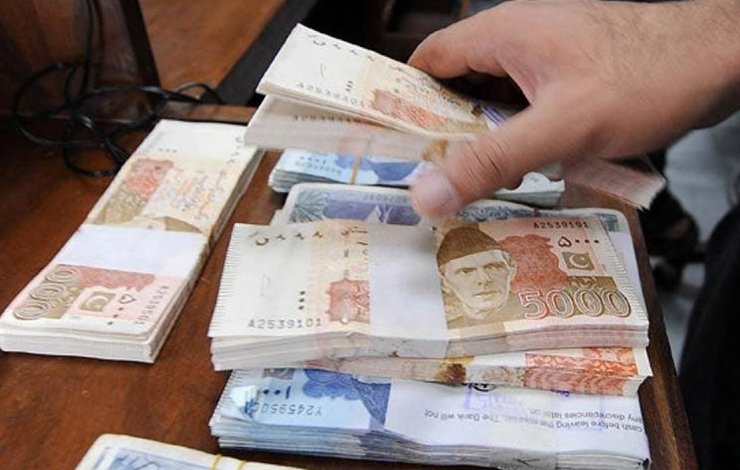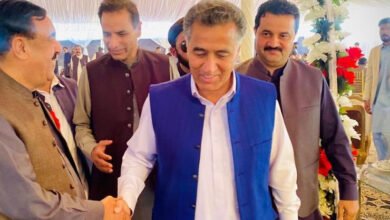Economic achievements of PM Imran Khan-led PTI govt (Part V)
Manufacturers in the textile sector were exempted from a 100 per cent cash margin by the central bank on the import of raw materials.

ISLAMABAD: Prime Minister Imran Khan-led Pakistan Tehreek-e-Insaf (PTI) government has made achievements and failures on different fronts during the past 3.5 years while continuing its journey to complete the tenure.
The incumbent government led by Pakistan Tehreek-e-Insaf (PTI) under the leadership of PM Imran Khan witnessed many achievements on the economic front that are given below:
Textile sector
Special measures were taken for the betterment of the textile sector. Manufacturers in the textile sector were exempted from a 100 per cent cash margin by the central bank on the import of raw materials besides addressing the grievances of the manufacturers regarding the shortage of capital.
Textile exporters were given concessions in electricity and gas rates. Electricity and gas rates were reduced for them, which reduced the production costs.
Economic achievements of PM Imran Khan-led PTI govt (Part IV)
Taxes and duties for the textile sector have been reduced. Regulatory duties, customs duties, additional customs duties on various genres of raw materials were abolished where possible and concessional duties were imposed where they could not be abolished.
In the budget of the current financial year, 240 raw materials of textile and leather products were made cheaper. The raw materials included a variety of chemicals, buttons, dyes, machinery and equipment. Similarly, duties were also reduced in the budget on various raw materials of more than 3,400 types for all industries across the country.
In the textile sector, it was also decided to give a discount to the ginners and a 1% tax rate was applied to the income of the ginners after the turnover.
Commerce Adviser Abdul Razzaq Dawood had also announced that the federal government is releasing Rs5.6 billion under Drawback on Local Taxes and Levies (DLTL). The implementation of the announcement had been seen in August 2021.
The scope of tax refunds has been widened and expedited in the textile sector. The Federal Board of Revenue (FBR) has streamlined the sales tax system for all sectors, including textiles. The board had introduced the FASTER (Fully Automated Sales Tax e-Refund) system, aiming to make the tax refund system automated to minimize the interference of tax officers.
Tax refunds were transferred directly to the respective bank accounts instead of cheques. Therefore, the timely tax refunds have reduced the difficulties faced by the textile manufacturers complaining about the shortage of capital.
Textile exporters have been facilitated under DLTL, whereas, DLTL payments also increased overall exports other than traditional exports.
Oil marketing companies
The PTI government resolved the problems of oil marketing companies on a priority basis. The exchange rate of the rupee against the dollar was incorporated in the oil prices for oil companies to save them from facing losses and affecting investment.
In view of the global impact on oil prices, the government decided that oil prices would be fixed every 15 days instead of monthly.
An inquiry commission was set up in 2020 to look into the plight of the people due to the oil crisis and shortage.
Oil marketing companies and other stakeholders in the sector were consulted to review the oil and gas policy.
In 2021, the consumption of petroleum products increased by 19% across the country. In the first eight months of the current financial year, the consumption of petroleum products has reached 19.5 million tons and an increase of 14% was recorded.
The PTI government gave big relief to the nationals to reduce the impacts of rising international prices of petroleum products. The sales tax rate on petrol and diesel was reduced to zero, whereas, the government also zeroed the Petroleum Development Levy (PDL).
A relief of Rs23 per litre in terms of sales tax on petroleum products and Rs30 per litre in the case of RPDL was given. It should be noted that even developed countries like New Zealand and Sweden failed to protect their people from the impacts of soaring international prices of petroleum products.
Increased margin of oil marketing companies, dealers
The longstanding demand of oil marketing companies and dealers was fulfilled by increasing their margin.
In December 2021, the dealer margin on petrol was increased from Rs3.91 to Rs4.90 per litre, whereas, the dealer margin on diesel was increased from Rs3.30 to Rs4.13 per litre. Similarly, the margin on petrol and diesel for oil marketing companies was increased by Re71 paise from Rs2.97 to Rs3.68 per litre.
Oil refineries
The PTI government approved a new oil refinery policy. It was proposed to fix prices on the basis of import parity and impose a 10% duty on the import of petrol and diesel for the next five years.
Special measures were adopted to strengthen the capital and financial position of the oil refineries.
The establishment of a new refinery with a capacity of 100,000 barrels per day is exempted from income tax for 20 years and if any existing refinery upgrades and increases its production capacity, it is subject to income tax for 10 years.
Similarly, the exemption in duties and taxes on machinery, equipment and other equipment for setting up an oil refinery was also announced.
Under the new oil refinery policy, local oil refineries were also given concessions on upgradation and opportunities were also provided for new foreign refineries.



